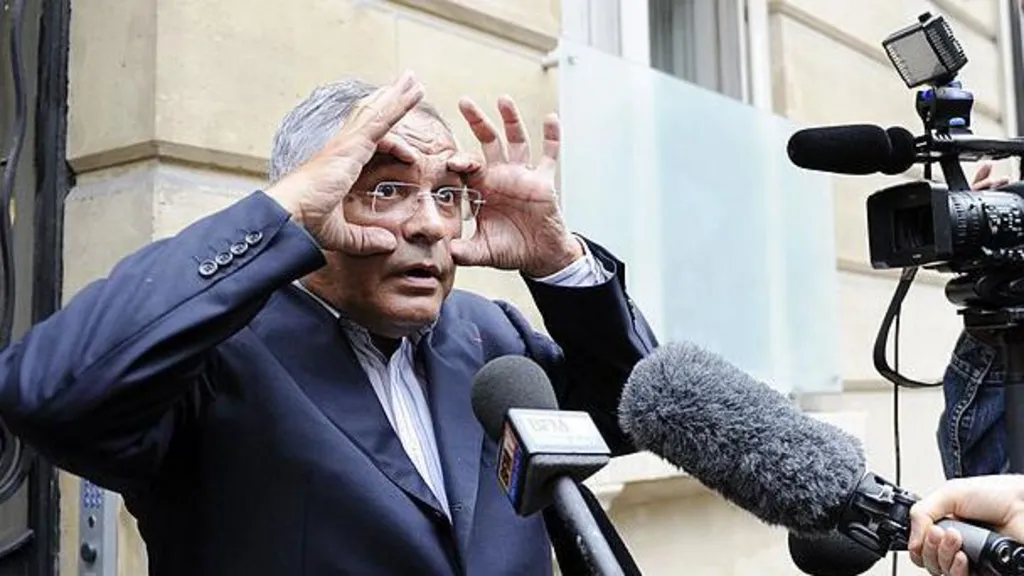Secrets of Françafrique: Robert Bourgi Reveals Cash Connections
3 min read
Robert Bourgi has lifted the lid on decades of work with French and African presidents.

Robert Bourgi has lifted the lid on decades of work with French and African presidents.
In January 1998, Robert Bourgi found himself in the antechamber of Gabonese President Omar Bongo’s seaside palace in Libreville, awaiting a meeting to secure funds for the French presidential election on behalf of Jacques Chirac, the center-right Gaullist candidate and then-mayor of Paris. Surprisingly, he was joined by Roland Dumas, former French foreign minister and close ally of Socialist President François Mitterrand, Chirac’s chief rival.
“Good day, Bourgi,” Dumas greeted him. “I believe we are here for the same purpose.” Claiming seniority, Dumas entered Bongo’s office first, later reassuring Bourgi, “Don’t worry, there’s still a bit left!”
This anecdote, recounted in Bourgi’s recently published memoir, They Know That I Know It All – My Life in Françafrique, encapsulates the longstanding interdependence and financial entanglements between French and African politics.
For four decades, Bourgi was at the epicenter of these dealings. Born in Senegal in 1945 to Lebanese Shiite parents, he became a trusted advisor to numerous African leaders, including Bongo, Denis Sassou Nguesso of Congo-Brazzaville, and Blaise Compaoré of Burkina Faso. In Paris, he took on a role reminiscent of Jacques Foccart, the Gaullist who orchestrated the post-colonial Françafrique system characterized by influence, protection, and, notably, financial transactions.
After World War II, Africa had become a vital source of funding for all French political parties. By the 1980s, when Bourgi entered the scene, this practice was routine. He clarified that he never physically transported the cash himself. Instead, he relayed messages from Chirac to African leaders, who would then send emissaries to his Paris office with substantial sums—often millions in francs or dollars.
During the 1995 and 2002 presidential elections—both victories for Chirac—Bourgi claims around $10 million was funneled from African leaders. One memorable incident from the 2002 election involved an envoy from Compaoré arriving in Paris with money concealed inside djembe drums. Bourgi and the envoy presented the cash to Chirac, who humorously remarked about the small denominations.
Handling such cash was often cumbersome. Bourgi recounts one occasion when a donation from another African leader arrived in Puma sports bags. In a pinch, he used his daughter’s poster to wrap the cash, highlighting the unusual yet routine nature of these transactions.
The system was so entrenched that a verb, cadeauter—derived from the French word for gift—emerged to describe these practices. When Bourgi’s revelations first surfaced in 2011, they were met with denials from officials in Burkina Faso and elsewhere. Nevertheless, a former advisor from Ivory Coast admitted that these practices were historically common.
Both Chirac and his chief of staff, Dominique de Villepin, vehemently denied Bourgi’s claims. A preliminary investigation was initiated but eventually dropped, deemed too outdated to pursue. For many African leaders, giving substantial amounts of money was an established way to foster trust and support.
However, as the political landscape evolved, Bourgi grew disenchanted with the old ways. When Nicolas Sarkozy came to power in 2007, he promised to sever financial ties with Africa—a vow Bourgi claims he upheld. Sarkozy has since faced allegations of accepting campaign funds from Libyan leader Muammar Gaddafi, which he denies. Bourgi, a loyalist of Sarkozy, expresses skepticism regarding these charges.
Now 79, Bourgi also reflects on his involvement in the 2017 election of Emmanuel Macron, where he played a role in undermining the campaign of conservative candidate François Fillon, whom he had once supported. After accusing Fillon of being rude and stingy, Bourgi leaked information about Fillon’s lavish gifts of expensive suits, contributing to Fillon’s political downfall amid a scandal over fake parliamentary jobs for his wife.
Despite his criticisms, Bourgi holds a deep affection for Africa. He acknowledges the corrupt nature of Françafrique but suggests that the system once provided stability and personal bonds between French and African leaders. Today, he observes a decline in France’s influence and a deteriorating image in its former colonies, exacerbated by recent military withdrawals from Mali and Niger.
“I note with sadness the disintegration of French relations with the continent,” Bourgi lamented. “However, it’s too easy to blame everything on Françafrique. Africa has globalized, and France has struggled to adapt, repeating the same mistakes rooted in arrogance.”